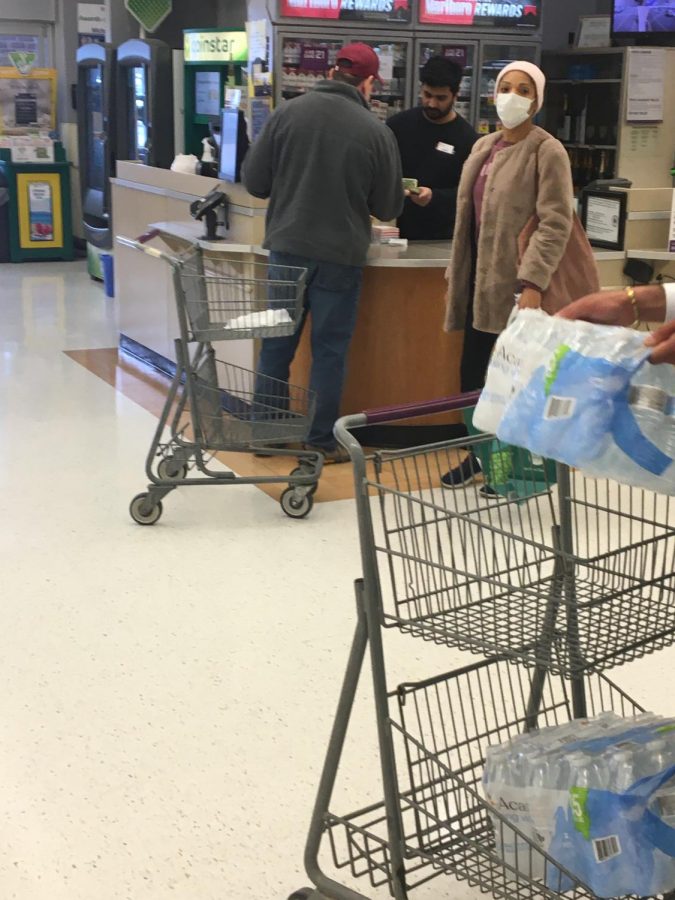COVID-19 sparks local panic
Grocery stores are emptied as preparations continue
The McLean local Giant was packed this weekend with cautious customers preparing for the worst. This masked shopper was waiting for help from customer service.
March 16, 2020
Across the country, millions of people are ignoring Covid-19 social distancing recommendations and gathering in crowded grocery stores to buy cleaning products and items to last through a hypothetical lockdown.
In McLean, this is no different. The town’s local Giant is packed with workers restocking the store’s empty shelves, which are vacated early in the morning by customers wearing gloves and face masks. There’s no question that panic has pursued in response to COVID-19, and people are preparing accordingly.
Panic-buying has led major grocery stores, like Wegmans, Walmart, and Whole Foods to change their operating hours to allow time to clean and restock according to NPR. This impacts employees, as their hours are cut, and they may not be able to pay for childcare. Additionally, hoarding items leaves those most at risk—the elderly and immunodeficient—without the products they need to stay safe.
In a CNBC article, Cambridge University assistant social psychology professor, Sander van der Linden, blamed panic-buying on the confusion incited by the U.S.’ response to the virus.
“In the U.S., people are receiving conflicting messages from the CDC and the Trump administration. When one organization is saying it’s urgent and another says it’s under control, it makes people worry,” Linden said.
McLean High School senior Sarah Gu discussed her family’s preparations, putting the panic-buying mentality on full display.
“My mom bought hand sanitizer, some masks and wipes,” Gu said. “My mom started prepping because she read on the news that the virus is very dangerous.”
Despite this, Gu says she has not prepared enough for the virus. According to Business Insider, though, this fear is unfounded, as “the Department of Homeland Security recommends stocking up on a two-week supply of food in the event of a pandemic.”
Gu may represent the anxiety many in the McLean area feel while prepping for Covid-19, but she has a piece of advice for the Federal Government and school about how they can make the situation better.
“The government should try to provide sanitary items for people that can’t afford them and also inform everyone about how dangerous the virus is since a lot of people are still unaware,” Gu said. “The school can also inform students and provide items for kids that need them.”
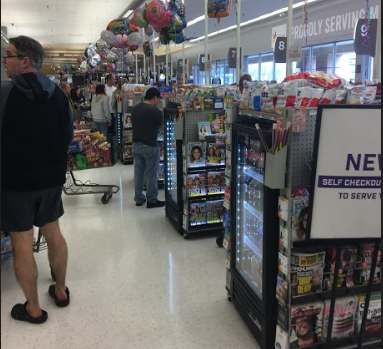
WAITING GAME—Customers wait in long lines as they scramble to buy essentials before hunkering down. Starting on Monday, many people began working from home.
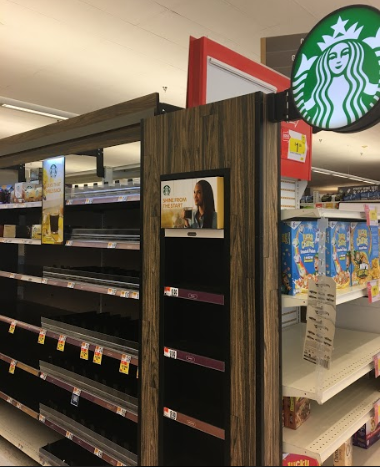
CRAZY FOR COFFEE—All coffee products, including Starbucks coffee, have been on short supply at the McLean Giant. There have been reports of price gouging on coffee products online.
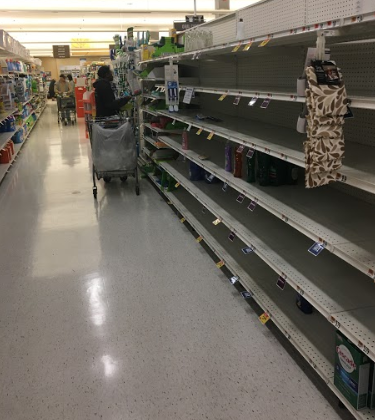
EMPTY AISLES—Shoppers all over the country have rushed to grocery stores in the morning, quickly clearing out restocked products. This has taken place at the McLean Giant as well.
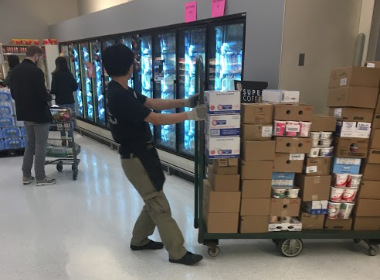
WORKING AROUND THE CLOCK—The McLean Giant has been bustling with employees, trying to keep up with high customer demand. This employee is pushing boxes of packaged yogurt.
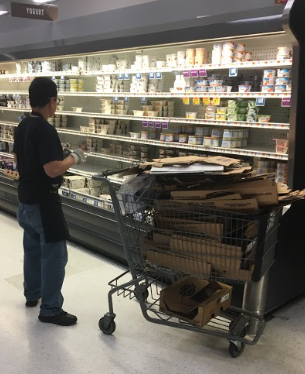
UNPACKING—This McLean Giant employee just finished restocking yogurt. He has a brief moment to rest before completing his next task on this busy Sunday.


